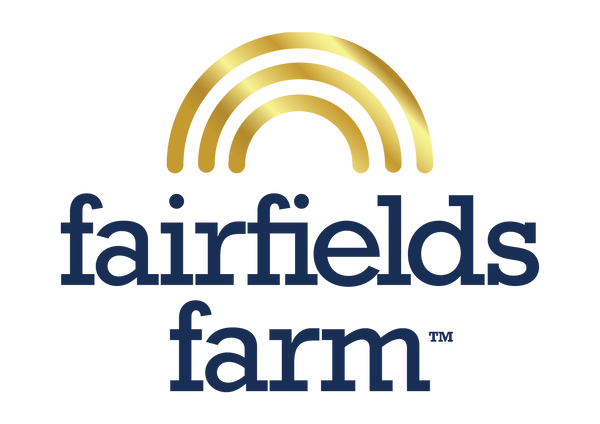Sustainability
Our farm is the hub of our lives and our business, and we want to make sure that we leave it better than we found it. More than that, we want to make sure that the potatoes grown and crisps cooked here have as little impact on our environment as possible.
We're proud to say that the Fairfields Farm brand is carbon neutral, with the majority of off-setting activity taking place around the farm. Our goal is to get to on-farm net zero.
Here's what our farm gets up to:
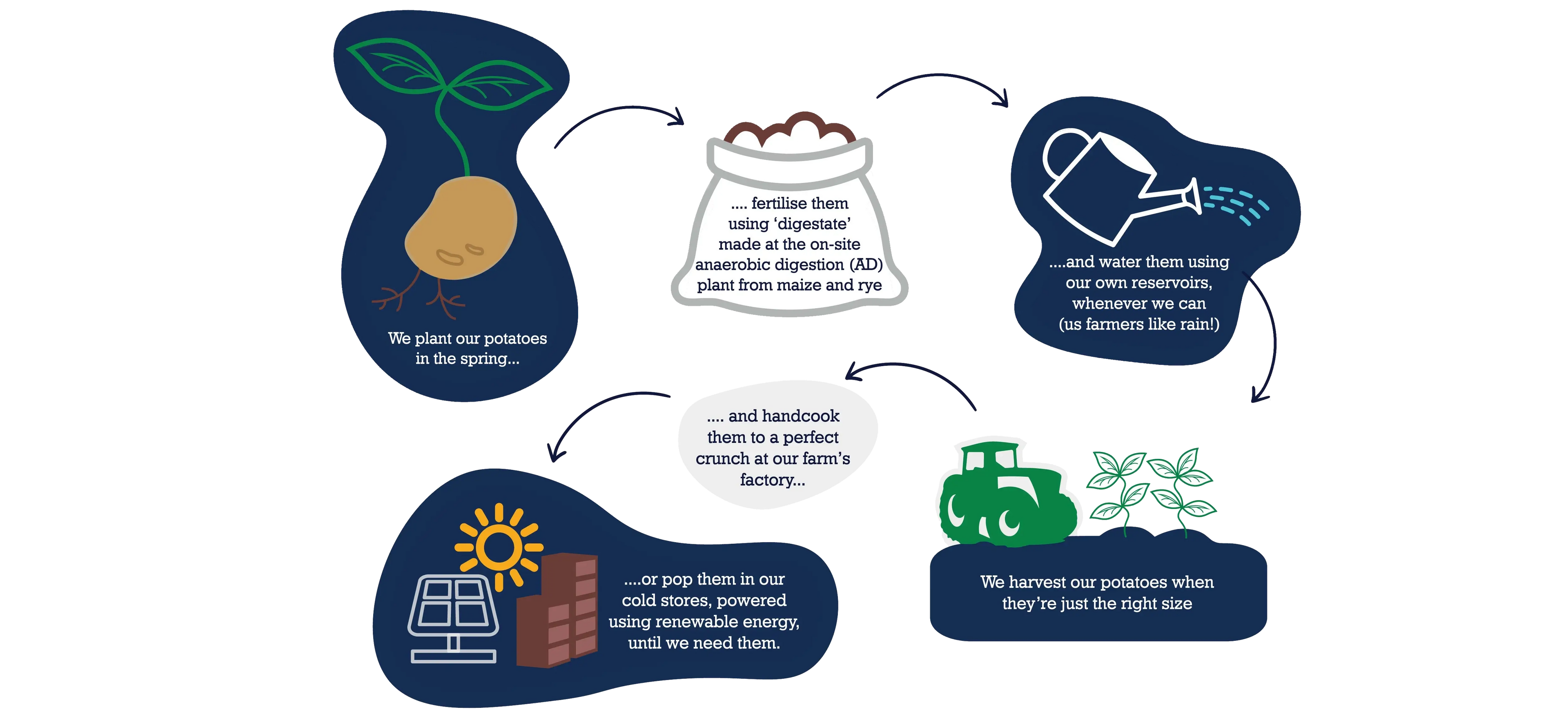
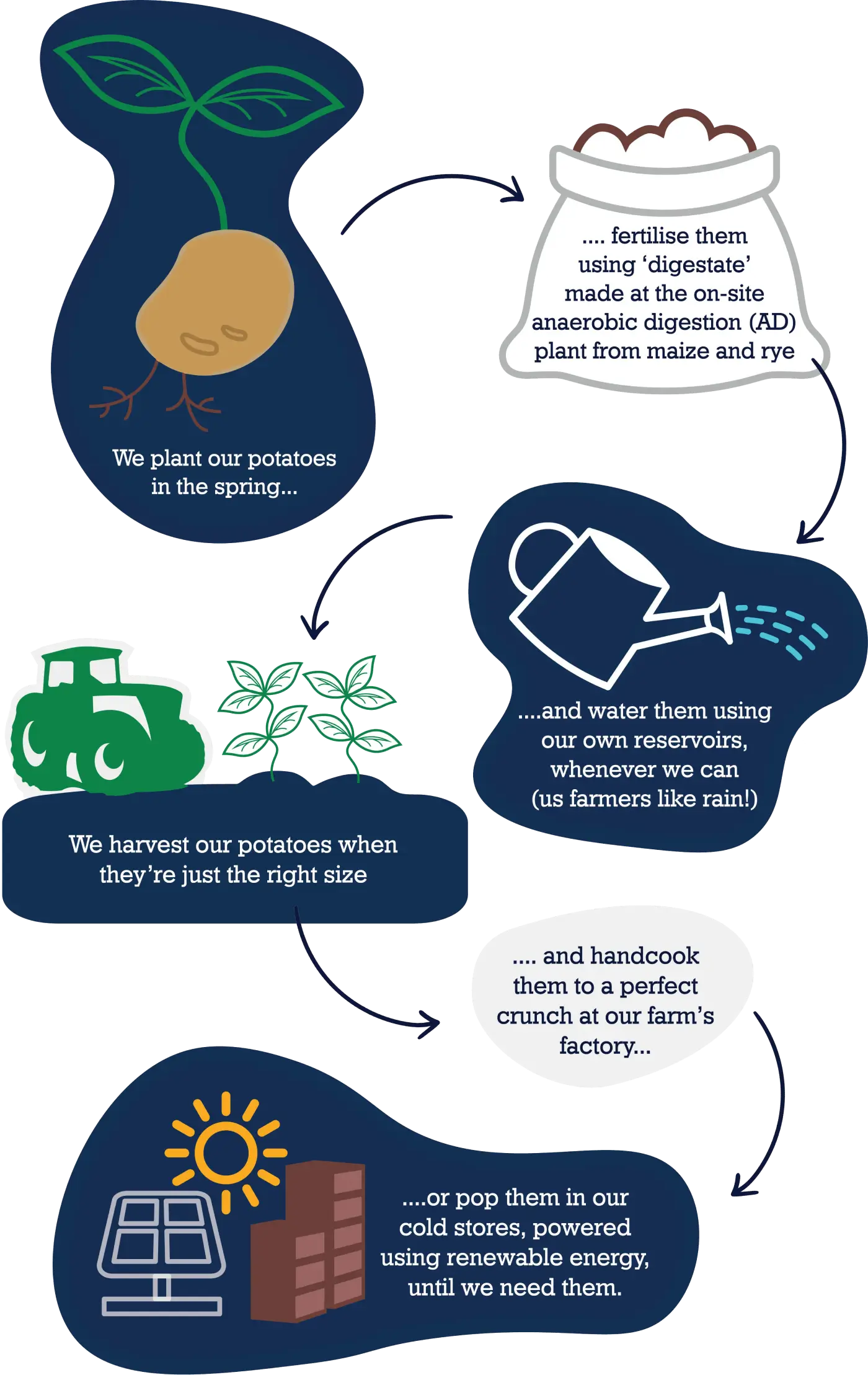
Meanwhile we also...
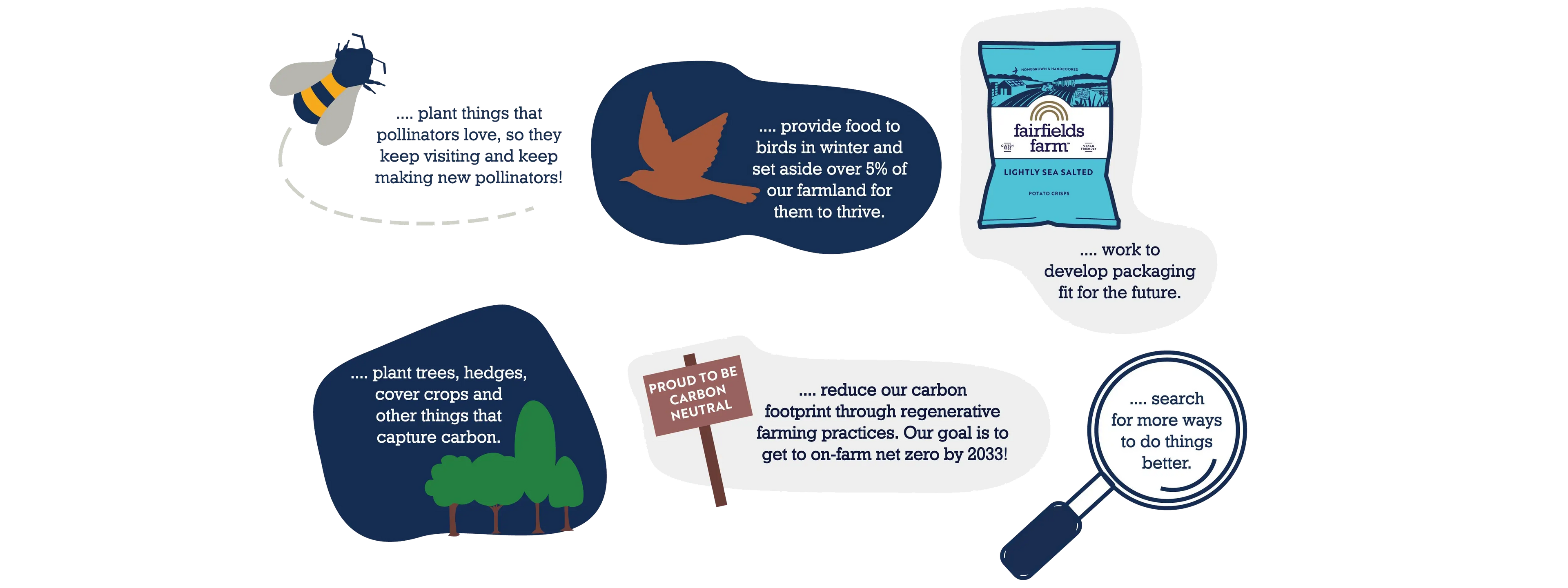
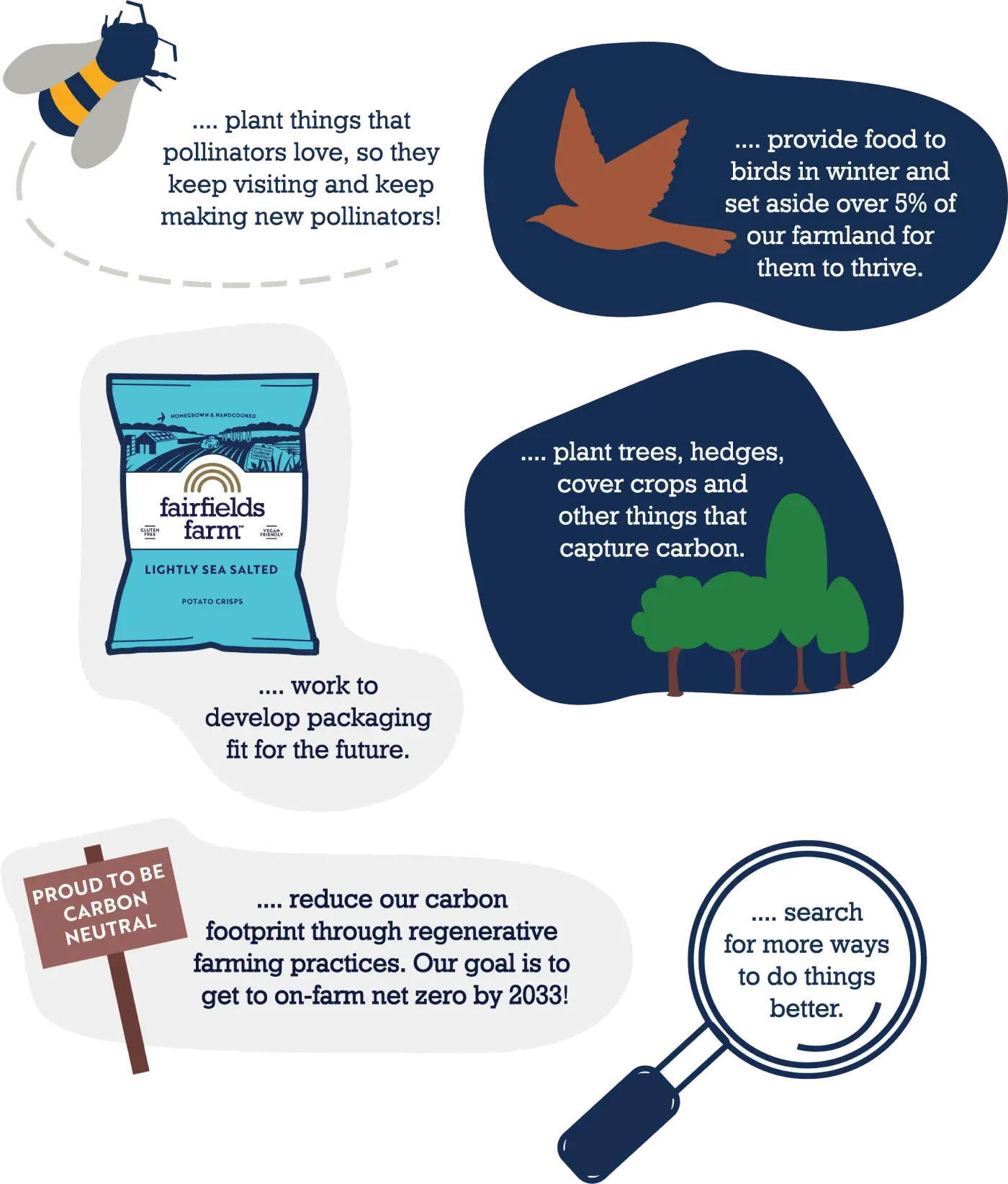
Our approach
-
1. Measure
To reduce our impact, we need to know it - the amount of fuel we use, how far we're commuting, how many potatoes are needed for a packet of crisps, the types of fertiliser we use... and so on. Then, we need to figure out the carbon footprint of each of those things.
-
2. Understand
Once we know all the different ways our activities might affect our environment, we are able to identify the things we can change - and the things we can't - as well as the impact that each change might make. For example, simple changes to our farming techniques can really improve our soil.
-
3. Act
Plans are good, but doing things is much better!
Questions you might have...
Why don't you use compostable packaging?
To get to the bottom of the problem of single use plastic, there are lots of solutions that need to be tried and tested. Some of them either aren't fit for purpose or might even cause more damage to the environment.
We are actively looking for a compostable, biodegradable and recyclable solution, but haven't found it yet.
There is an important distinction between biodegradable and compostable.
No current available packaging is biodegradable. Biodegradable means it will break down no matter what environment it ends up in.
Some current available packaging is compostable, but we don't think it's quite there yet. Compostable means it needs very specific conditions to break down.
This isn't about money. We know compostable packaging would be more expensive, and we'd be willing to consider that, but that isn't the reason we're hesitant right now. Here's why:
- There are vanishingly few facilities in the UK that will accept this packaging, even if certified
- Not everyone has a compost bin or access to composting facilities
- If you home compost you will struggle to get the degradation conditions right, risking adding microplastics into your soil when you get round to using it - the very thing we all need to avoid.
- The production process for compostable film requires materials not commonly found in the UK, increasing its relative carbon footprint.
- We don't want people to think that they can litter and their packaging will just disappear.
- Compostable packaging cannot be recycled, which means it can often be the definition of single use.
Right now, our packaging is recyclable at soft plastic recycling locations, but the UK needs better facilities overall - more widespread kerbside recycling, more composting locations.
In the meantime, we're looking into things like bio-based inks and using thinner films and as little excess packaging as possible.
How will you get to net zero?
We have lots to do. Our goal is to be net zero and in order to achieve this we need to increase our renewable energy capacity, investigate and implement alternative fuel uses and create more habitats on the farm, on land we don't use, or is unproductive. We also need to lend our voice to the fight tackling food waste in this country.
Can you recycle the crisp packets?
You can recycle your crisp packets with bags at large supermarkets.
Are Fairfields Farm crisps vegan and gluten free?
Yes, our whole flavour range is vegan and gluten free, even our Roast Rib of Beef and Prawn Cocktail flavour.
Where do you source the potatoes for the crisps?
We grow, nurture and harvest our potatoes on the Essex and Suffolk border. We cook and pack our crisps in our onsite factory in Essex.
